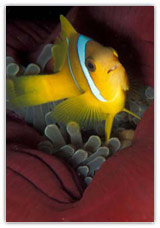
PERSGA - Early Initiatives:
PERSGA has played an active role in promoting regional cooperation by supporting national environment plans as well as organizing workshops concerning conservation of environment in the Red Sea and Gulf of Aden. PERSGA aims to provide for and address marine pollution issues, marine management and sustainable use of living marine resources, conservation of habitats and biodiversity, reduction of navigation risks, the establishment of a network of marine protected areas, integrated coastal zone management programmes, and to promote public awareness, participation and capacity building.
PERSGA’s most significant achievement to date has been the development of international law protecting the marine environment of the region. The 1982 Jeddah Convention, signed by PERSGA’s seven member states, centers mainly on the prevention, reduction and fight against marine pollution.
 Among its achievements on the ground, thanks to continued cooperation with UNESCO and ALECSO, PERSGA has adopted an oil spill trajectory model for the Red Sea and Gulf of Aden, as well as a network of Tide gauges. It has also worked in close cooperation with the United Nations Environment Program (UNEP) to evaluate the status of marine mammals in the region. By gathering such important data, PERSGA can better monitor the effects of its actions and design appropriate programmes aimed at sustaining biological health and diversity in the region.
Among its achievements on the ground, thanks to continued cooperation with UNESCO and ALECSO, PERSGA has adopted an oil spill trajectory model for the Red Sea and Gulf of Aden, as well as a network of Tide gauges. It has also worked in close cooperation with the United Nations Environment Program (UNEP) to evaluate the status of marine mammals in the region. By gathering such important data, PERSGA can better monitor the effects of its actions and design appropriate programmes aimed at sustaining biological health and diversity in the region.
In Djibouti and Sudan, for example, PERSGA carried out a survey of natural habitats so as to formulate plans for their protection. Also in Sudan, a national plan for marine science was devised by PERSGA, which included mechanisms for the collection of data, assessment of pollution impacts, and the monitoring of pearl, oyster and shrimp cultivation in the Sudanese coastal waters.
PERSGA also conducted environmental assessments of the coasts of Saudi Arabia and Yemen in cooperation with IUCN. the cooperation between PERSGA and IUCN has also led to the establishment of a marine national park off the coast of Aqaba in Jordan.
On a regional level, the organization has held several training workshops, focusing on environmental assessment procedures, surveys and monitoring mechanisms to deal with and to prevent oil pollution, the establishment of marine protected areas and the development of a sound coastal zone management programmes in the region.